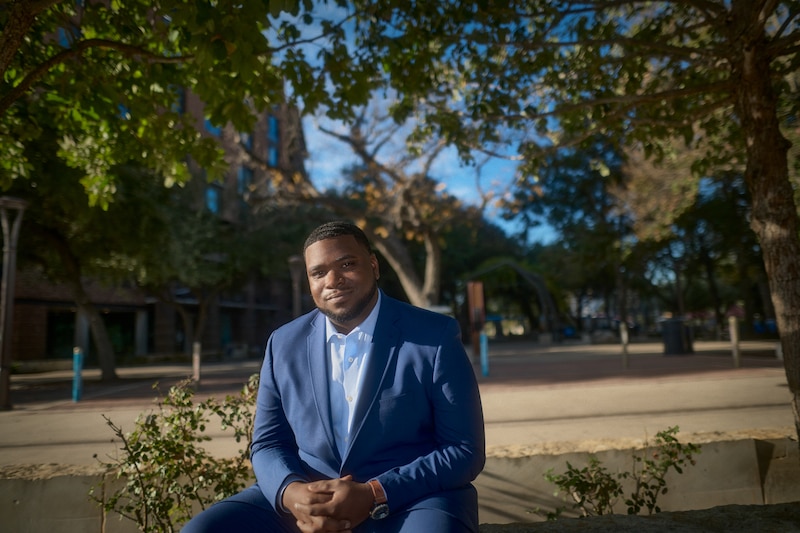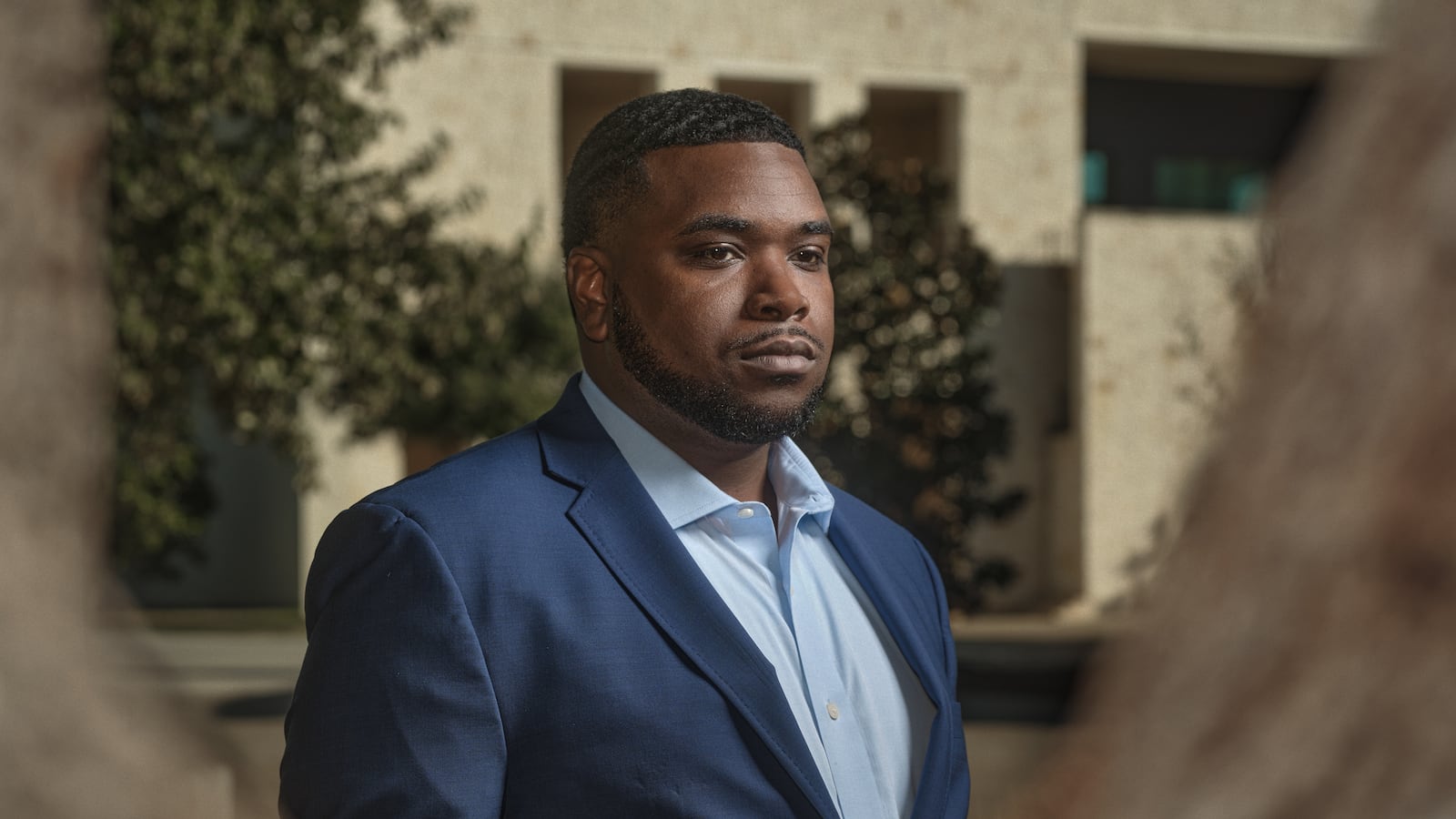A planned San Antonio charter school was on the verge of winning final approval from the Texas Education Agency last August when a final set of requests arrived.
Among them: The school needed to scrub its website and application of a quote by “How to Be an Antiracist” author Ibram X. Kendi.
In documents obtained by Chalkbeat, the agency indicated that the proposed school, Essence Preparatory, had included “statements, authors, or written works” violating a new Texas law that limits how race and slavery can be taught. But that law does not bar specific authors, and the quote does not appear to run afoul of any portion of the law, suggesting that Texas has gone beyond the text of the statute to keep schools from referencing an author whose work is controversial.
“This is more clear evidence of what anti–book banning advocates have been warning for months now,” said James Tager, research director of PEN America, a group that opposes censorship. “It is going to be used — and, in fact, is being used in cases like this — to ban specific books or authors.”
Essence Prep’s experience sheds new light on how laws opposing “critical race theory” are being used and interpreted behind the scenes. Texas’ enforcement also had practical consequences for the school, costing it both money and time.
“That took almost three months away from us in prepping and setting the stage for the scholars that we will serve,” said founder Akeem Brown. “We’re playing catch up.”
Brown, who is Black, had long dreamed of starting his own school. While working for a city council member in San Antonio, he saw the area’s anemic college-readiness rate and began talking to parents and students about what they wanted to see in a school.
“He spoke about empowering people through knowing their race and their lineage,” said Dre Daniels, a parent who met Brown at the barbershop where Daniels cuts hair. “When the parents and the school can be on the same level, the learning never stops.”
In early 2021, Brown submitted a nearly 500-page application to the state, promising high academic standards, culturally responsive teaching, and a focus on learning about public policy. Included in the application was this quote from Kendi: “The opposite of racist isn’t ‘not racist.’ It is antiracist.”
The plan won high marks from the Texas Education Agency, which recommended the school be granted a charter.
By June, when the Essence Prep leaders appeared before the State Board of Education for a final approval, the state had been consumed by a debate about critical race theory. Texas Gov. Greg Abbott had just signed a bill limiting discussions of race; he later approved a slightly revised statute, which is now state law.
Under that law, schools cannot award course credit for “political activism” or work for organizations focused on public policy advocacy. They also cannot teach that “slavery and racism are anything other than deviations from, betrayals of, or failures to live up to the authentic founding principles of the United States.”
“We are compelled to offer a culturally competent curriculum,” Brown told the state board members in June. “But I do want you to know that we will serve our students following the law of the state of Texas.”
Two days later, the board voted 11-3 to approve the charter.
Brown believed then that he could start focusing on making the school a reality. “When I walked out of that building to head back to San Antonio, that’s all I kept thinking in the car — that that part of the process was over,” he said.

It wasn’t. Days after the school was approved, the chief of staff for state Rep. Steve Toth emailed TEA Commissioner Mike Morath and his staff a draft of an op-ed sharply criticizing the agency’s approval of Essence Prep. Toth spearheaded the state’s first anti–critical race theory law, which he has said was prompted by parent concerns that curriculum choices were making white students feel guilty because of their race.
“Unlike other charter schools who focus solely on academics, Essence Prep’s goal is to promote Critical Race Theory and community activism,” wrote Toth in the op-ed, which was never published but was obtained by Chalkbeat through a public records request.
“Promoting ‘antiracism’ in the classroom would mean teaching that the system of government in Texas, designed to protect economic freedom, is racist,” Toth continued, noting that Essence Prep’s website quoted Kendi. “Instead of stopping critical race theory, the Texas Education Agency furthered it.”
Toth’s office did not make him available for an interview or answer questions about his involvement.
Soon, concern about the Kendi quote made its way to Essence Prep. In August, Brown received an email from a TEA official saying the school needed to make a series of changes in order to receive its final charter approval.
The website and application would have to remove certain “statements, authors, or written works.” That was apparently a reference to Kendi, as TEA cited a page in the application that quoted him and no other authors. Essence Prep would also have to define the word “anti-racist” on its website and clarify sections of its application that emphasized community action and engagement in public policy.
A spokesperson for TEA did not make Morath available for an interview or answer detailed questions about the handling of Essence Prep’s application.
“During the annual application process, TEA reviews all charter applications for alignment with state and federal laws,” the spokesperson wrote in a statement. “Any conflicts between the applications and law are required to be remedied.”
Brown says he doesn’t believe that the school’s citation of Kendi violated the statute. “I just think it offended those supporters of the law,” he said.
But Essence Prep ultimately removed all references to antiracism from its website and application. The school was granted a charter in October and plans to open its doors in August 2022.
Publicly, TEA has shared little about how it is enforcing and interpreting the new law. In November, it released a document that quoted from the law but did not address some of its ambiguous aspects, like what it means to teach controversial topics “objectively.” Some educators in Texas and elsewhere have acknowledged self-censoring for fear of violating the statutes that have cropped up across the country.
In this case, by referring to “authors or written works in violation” of the law in its letter to Essence Prep, TEA appears to be suggesting that certain writers are out of bounds in the state’s public schools. The current law bars schools from “requir[ing] an understanding of the 1619 Project,” but otherwise does not single out authors or texts.
Joshua Weishart, an education law professor at the University of West Virginia, said Texas had overstepped. “TEA lacks a statutory basis for instructing Essence charter school to remove the quote in their application,” he said.
Tager of PEN described TEA’s move as striking. “This is a state body saying our interpretation of the bill means you cannot refer to specific authors when developing your educational vision,” he said. Schools could reasonably interpret this to mean that Kendi’s work is barred from curriculum too, Tager said.
For his part, Brown says he believes TEA required these changes to deflect political pressure and allow the school to open. “I don’t blame the good people of TEA,” he said. “The problem was the political climate.”
Still, Brown said, the delay meant that a bond deal to finance a permanent building fell through because the school lacked an approved charter. Essence Prep is still finalizing a bond and now expects to pay a higher interest rate. The school also racked up thousands of dollars in extra legal fees, according to a bill shared with Chalkbeat.
But the school is moving forward, and some parents have expressed continued support.
Alshanic Bledsoe, a home health nurse in San Antonio, is eager to send her 5-year-old daughter to Essence Prep once it opens. “Racism is definitely something that’s learned,” she said. “So antiracism is something that has to be learned. It has to be taught.”


